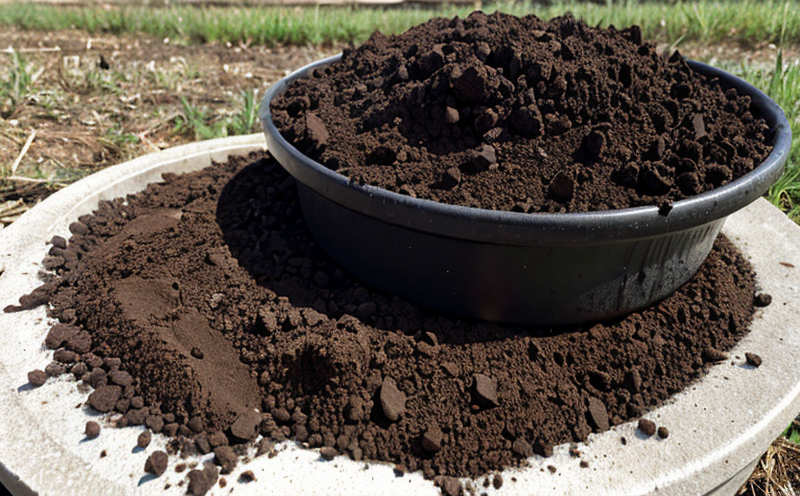ASTM D8292 PCBs in Leachates and Byproducts
The testing of polychlorinated biphenyls (PCBs) in leachates and byproduct streams is a critical component for ensuring compliance with environmental regulations. ASTM D8292, titled “Standard Test Method for Determining Polychlorinated Biphenyls (PCBs) in Leachate and Byproducts Using High-Resolution Mass Spectrometry,” provides a robust approach to identifying PCB concentrations accurately.
PCBs were widely used in various industrial applications until their production was banned due to environmental concerns. However, they persist in the environment for long periods, leading to contamination of landfills and other waste management sites. Leachate from these sites often contains PCBs, which can pose significant risks if not properly managed.
The testing process outlined by ASTM D8292 involves several steps: collecting leachates or byproduct samples, preparing them for analysis, and then using high-resolution mass spectrometry to detect and quantify the presence of PCB congeners. This method ensures that even trace amounts of these contaminants are identified, allowing for effective risk assessment and remediation efforts.
The significance of this testing cannot be overstated, especially in sectors like waste management where proper disposal is paramount. By adhering to ASTM D8292 standards, facilities can ensure they meet stringent regulatory requirements, protect public health, and minimize ecological impact. This service plays a crucial role in maintaining the integrity of environmental practices across various industries.
One of the key aspects of this testing is the use of high-resolution mass spectrometry (HRMS). HRMS provides unparalleled precision by separating individual PCB congeners based on their molecular weight, allowing for accurate identification and quantification. This technology ensures that no contaminant goes undetected, providing reliable data for decision-making processes.
Another important factor is the preparation of samples. Proper sample handling is essential to prevent contamination or degradation before analysis. This includes filtering leachates to remove particulate matter and ensuring accurate volume measurement. The choice of extraction solvents and pH conditions also significantly impacts the accuracy of results. By following strict protocols, laboratories like Eurolab can ensure consistent and reproducible outcomes.
The ASTM D8292 method specifies a range of congeners for analysis, including Aroclors 1016, 1232, 1242, 1254, and others. Each congener has distinct properties and potential environmental impacts, making comprehensive testing vital for understanding the full scope of contamination present in leachates or byproducts.
Compliance with ASTM D8292 is not only about meeting regulatory standards but also about demonstrating a commitment to sustainability and responsible waste management practices. By offering this service, Eurolab supports clients in achieving these goals while ensuring their operations remain compliant with international guidelines such as ISO 17025 for laboratory accreditation.
Why It Matters
The importance of PCB testing cannot be overstated, particularly when dealing with leachates and byproducts from waste management facilities. Contamination from these sources can lead to serious environmental issues, including soil and water pollution, which have long-term consequences for ecosystems.
- Health Risks: Exposure to PCBs has been linked to various health problems, making it essential to monitor their presence in leachates and byproducts. Proper testing helps identify contaminated materials early, allowing for timely interventions to mitigate risks.
- Regulatory Compliance: Many countries have strict regulations governing the disposal of hazardous substances like PCBs. Failure to comply can result in hefty fines and penalties. By providing accurate testing services, Eurolab ensures clients stay ahead of regulatory changes.
- Sustainability: Ensuring proper waste management practices supports broader sustainability goals by reducing environmental impacts. This service contributes to sustainable development initiatives that aim to minimize harm to the environment.
In summary, PCB testing is crucial for addressing health and environmental concerns while ensuring compliance with international standards. It plays a vital role in promoting responsible waste management and protecting public health and the environment.
Benefits
- Enhanced Compliance: Ensures strict adherence to environmental regulations and standards, minimizing legal risks.
- Risk Mitigation: Early identification of PCB contamination allows for prompt remediation measures, reducing potential harm.
- Sustainable Operations: Supports sustainable practices by promoting responsible waste management and protecting the environment.
- Reputation Enhancement: Demonstrates a commitment to environmental responsibility, boosting your organization's reputation.
The ASTM D8292 testing service offered by Eurolab provides numerous benefits that contribute to overall operational efficiency and sustainability. By ensuring accurate and reliable results, this service supports clients in meeting regulatory requirements while promoting responsible waste management practices.
Eurolab Advantages
At Eurolab, we offer a comprehensive suite of services tailored specifically for the waste management sector, focusing on PCB testing according to ASTM D8292. Our expertise in this area ensures that clients receive accurate and reliable results, which are essential for making informed decisions.
- Accreditation: Eurolab is accredited under ISO 17025, ensuring our testing methods meet the highest standards of quality and reliability.
- Experience: With years of experience in waste management testing, we understand the unique challenges faced by this sector and can provide specialized solutions.
- Technology: Leveraging advanced instrumentation like high-resolution mass spectrometry (HRMS), Eurolab delivers precise results even for trace amounts of PCBs.
- Customer Support: Our dedicated team provides exceptional customer service, offering guidance and support throughout the testing process.
By choosing Eurolab for your ASTM D8292 testing needs, you can trust in our commitment to delivering accurate, reliable, and compliant results. Our expertise, combined with state-of-the-art technology, ensures that you receive the best possible service in the waste management sector.





